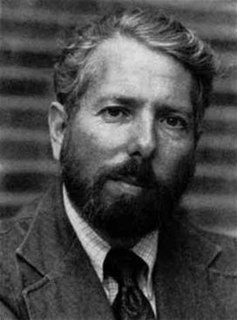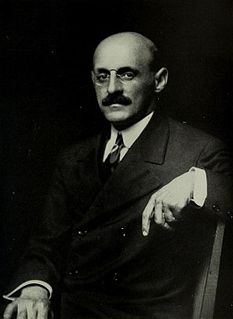A Quote by Herbert Hoover
An ideal is an unselfish aspiration. Its purpose is the general welfare not only of this but of future generations. It is a thing of the spirit. It is a generous and humane desire that all men may share equally in a common good. Our ideals are the cement, which binds human society.
Related Quotes
To lay taxes to provide for the general welfare of the United States, that is to say, 'to lay taxes for the purpose of providing for the general welfare.' For the laying of taxes is the power, and the general welfare the purpose for which the power is to be exercised. They are not to lay taxes ad libitum for any purpose they please; but only to pay the debts or provide for the welfare of the Union.
There is an elementary aspiration which undergirds the humane impulse in our history and our culture and binds us together as political activists. This is a simple, irreducible, indisputable aspiration. It is the 'dream of justice' for a beloved community, in which the level of terror in people's lives is sharply reduced or maybe eliminated. It is the belief that extremes and excesses of inequality must be reduced so that each person is free to fully develop his or her full potential. This is why we take precious time out of our lives and give it to politics.
To think the welfare and the goodness of the next generations is indeed a good ethics, but there is much greater ethics than this: To think the welfare and the goodness of the current generations, the very people of now! The reason is simple: Future may not exist, it is only a possibility, but the people of now are not possibility, they are here!
Our generation may stand at a crucial breakpoint in history, for we in the presently affluent nations may be the last who can afford to open up the high frontier. What we do during the next ten or twenty years may determine whether future generations will live in a humane and rewarding society, or whether they will spend their lives in desperate contention for the dwindling sustenance afforded by our limited terrestrial resources.
The fault with all religions like Christianity is that they have one set of rules for all. But Hindu religion is suited to all grades of religious aspiration and progress. It contains all the ideals in their perfect form. For example, the ideal of Shanta or blessedness is to be found in Vasishtha; that of love in Krishna; that of duty in Rama and Sita; and that of intellect in Shukadeva. Study the characters of these and of other ideal men. Adopt one which suits you best.
The martial spirit is never dead. It sleeps through fortunate generations, but it wakes up very quickly to the toot of a fife. There's that roistering spirit in men which leads them to think a good fight is a lark - until they've been in one. And the impulse to fight for your own incarnation of an ideal.
The good, say the mystics of spirit, is God, a being whose only definition is that he is beyond man's power to conceive — a definition that invalidates man's consciousness and nullifies his concepts of existence. The good, say the mystics of muscle, is Society — a thing which they define as an organism that possesses no physical form, a super-being embodied in no one in particular and everyone in general except yourself.... The purpose of man's life, say both, is to become an abject zombie who serves a purpose he does not know, for reasons he is not to question.
General welfare is a general condition - maybe sound currency is general welfare, maybe markets, maybe judicial system, maybe a national defense, but this is specific welfare. This justifies the whole welfare state - the military industrial complex, the welfare to foreigners, the welfare state that imprisons our people and impoverishes our people and gives us our recession.
Men speak of blind destiny, a thing without scheme or purpose. But what sort of destiny is that? Each act in this world from which there can be no turning back has before it another, and it another yet. In a vast endless net. Men imagine that the choices before them are theirs to make. But we are free to act only upon what is given. Choice is lost in the maze of generations and each act in the maze is itself an enslavement for it voids every alternative and binds one ever more tightly into the constraints that make a life.
How glorious, then, is the prospect, the reverse of all the past, which is now opening upon us, and upon the world. Government, we may now expect to see, not only in theory and in books but in actual practice, calculated for the general good, and taking no more upon it than the general good requires, leaving all men the enjoyment of as many of their natural rights as possible, and no more interfering with matters of religion, with men's notions concerning God, and a future state, than with philosophy, or medicine.
Curiosity, which may or may not eventuate in something useful, is probably the most outstanding characteristic of modern thinking ... Institutions of learning should be devoted to the cultivation of curiosity, and the less they are deflected by the consideration of immediacy of application, the more likely they are to contribute not only to human welfare, but to the equally important satisfaction of intellectual interest, which may indeed be said to have become the ruling passion of intellectual life in modern times.
Ideals are very often formed in the effort to escape from the hard task of dealing with facts, which is the function of science and art. There is no process by which to reach an ideal. There are no tests by which to verify it. It is therefore impossible to frame a proposition about an ideal which can be proved or disproved. It follows that the use of ideals is to be strictly limited to proper cases, and that the attempt to use ideals in social discussion does not deserve serious consideration.

































